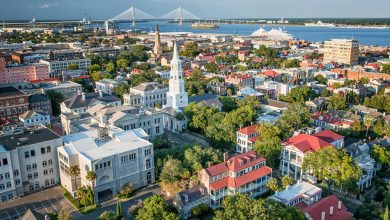Charleston, South Carolina – Omicron is spreading across South Carolina like crazy, but health experts believe that the numbers will go up by the end of January when the state is expected to see the highest number of cases as a result of the current winter wave.
The initial Omicron studies show that people infected with Omicron usually have mild to no symptoms, but the variant is very transmissible because of the relatively high number of mutations. Although the chances of getting hospitalized are much lower compared to the previous variants, the higher infection rate is expected to once again put a lot of pressure on the hospitals.
In the last couple of weeks, testing sites and hospitals are getting overwhelmed with patients and this trend is expected to continue in the upcoming period.
The Medical University of South Carolina is among the hospitals already seeing a significant increase in hospitalized Omicron patients. According to the data released by the hospital, the number of patients has tripled since last month once again rising concerns of how the hospital will handle this Covid-19 wave.
MUSC said that only 25% of the total number of hospitalized patients are fully vaccinated, while the percentage of those with three doses is much lower, meaning that the highest percentage of hospitalized patients are those unvaccinated.
MUSC officials are aware of the fact that the numbers will go up in the upcoming weeks and are doing everything in their power to be prepared for the increasing number of patients. They encourage South Carolinians to get vaccinated as soon as possible to build immunity against the virus.
Numerous studies have shown that the effectiveness of the vaccines dropped to around 40% when it comes to Omicron variant, but a booster shot will again increase the protection against the virus to nearly 80%. That’s why those fully vaccinated are advised to get their booster shot once eligible.
In addition, MUSC officials confirmed that the antibody treatments used in the early stages of the infection in the past few months are now reduced following multiple studies showing that the treatments are not working against the Omicron variant of the virus.
MUSC says a newer drug- one more effective against Omicron- is in very low supply throughout the country. A newer oral medication is also in limited supply.
“We need more people to be optimally protected from severe sickness now to reduce the demand for infusions,” MUSC officials said.
Data from the Centers for Disease Control and Prevention shows people who were fully vaccinated with a booster dose had lower case rates than those without.





Leave a Reply
You must be logged in to post a comment.